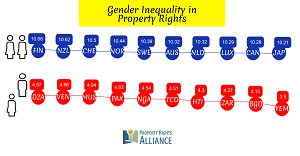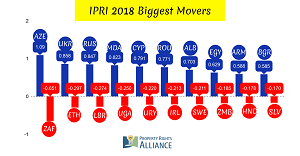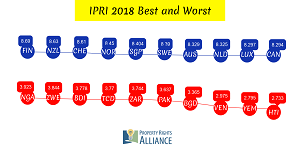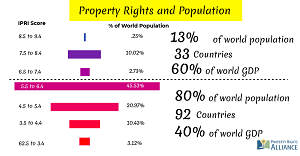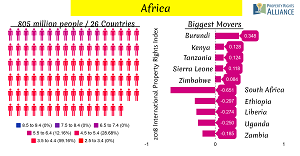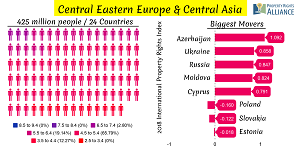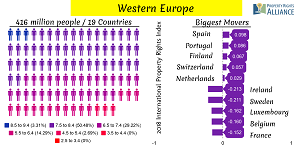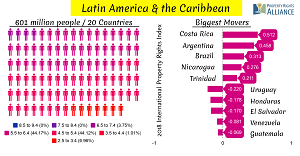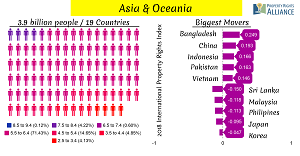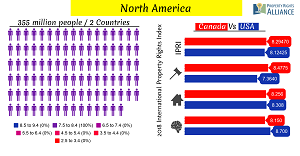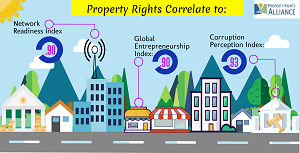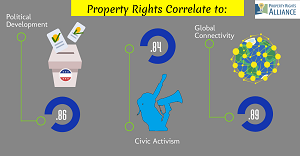

Media release
8 AUGUST 2018
Contact: Lorenzo Montanari
@: lmontanari@propertyrightsalliance.org
South Africa PLUMMETS to 37th in global property rights rankings, falling behind Rwanda
2018 International Property Rights Index released
On property rights South Africa was ranked 27th overall and 1st in the African region. However, South Africa's score declined by 0.65 from 7,00 in 2017 to 6,35 in 2018. This is the largest decline by any country measured in the index. With the dramatic decline in its score, South Africa is now ranked 37th overall and 2nd in the region behind Rwanda.
2018 International Property Rights Index Released
The global index ranks property right protections in 125 countries,
covering 98% of world GDP and 93% of the world population
JOHANNESBURG – Property Rights Alliance, in cooperation with 113 think tanks across the world, is proud to release on August 8th, the 2018 International Property Rights Index in partnership with the Free Market Foundation in South Africa. The Index measures the strength of physical property rights, intellectual property rights, and the legal and political environments that contain them.
The IPRI Global Launch will be broadcasted on August 8th @ 8.30 am (SAST time) on Facebook Live (from Johannesburg) https://www.facebook.com/FMFSA/
Worldwide, six billion people suffer from inadequate protection of their property rights. Only 758 million people, 13 percent of the world, enjoy adequate protections for their artistic works, inventions, and private property. Three countries, Finland, New Zealand, and Switzerland (a quarter of one percent of the world) have achieved the highest property rights protections—according to the 2018 International Property Rights Index
Alarmingly, for the first time the United States fell from being 1st in the world for intellectual property protections to 2nd, yielding to Finland, which also passed New Zealand to become 1st in the Index overall (8.69). The Index is also the first publication to utilize the recently updated Patent Rights Index developed by Professor Walter Park at American University.
Property rights are a key indicator of economic success and political stability. Renowned economist Hernando De Soto said, “weak property rights systems not only blind economies from realizing the immense hidden capital of their entrepreneurs, but they withhold them from other benefits as evidenced through the powerful correlations in this year’s Index: human freedom, economic liberty, perception of corruption, civic activism, and even the ability to be connected to the internet, to name a few.”
Property rights are an essential component of prosperous and free societies. This year the report includes correlations with no less than 23 economic and social indicators, including 9 specific to e-commerce which displayed some of the strongest relationships the Index has ever discovered – suggesting rights play an important role in addressing internet access issues.
Property Rights are restricted by gender. Poor property rights protections are bad enough; however, the Gender Equality component of the Index reveals that several countries in the Middle East, North Africa and Sub-Saharan Africa regions continue to limit property ownership based solely on gender.
On the release, Lorenzo Montanari, Executive Director of Property Rights Alliance which produces the annual Index, called property rights “the most consequential disparity affecting the world today. Property rights determine what you can do with your assets. Inadequate protections limit what people do with their mind, with their hands, and how they relate to one another.”
The IPRI in its 12th edition also includes six case studies from think tanks around the world including a report on a land titling program in South Africa which experienced the largest drop in property rights protections after Cyril Ramaphosa, the president, called for land expropriation without compensation.
Case Studies
Farmland trade ban in Ukraine. How to stop the biggest property rights violation in Europe By Maryan Zablotskyy, Ukrainian Economic Freedoms Foundation (Ukraine)
Contemporary Land Issues in the Federal Democratic Republic of Nepal By Sneha Pradhan, Samriddhi Foundation (Nepal)
Digital Piracy in Malaysia By Muhammad Adli Amirullah, Institute for Democracy and Economic Affairs (Malaysia)
Property Rights Reform: The secret to Japan’s exceptional post World War Two Recovery By Yuya Watase, Pacific Alliance Institute (Japan)
Pursuing property titles for low income households in South Africa By Jessica Canada Wellman & Jasson Urbach, Free Market Foundation (South Africa)
A Special Case Study from an Economic School on Property Rights: Intellectual Property Rights from the Austrian School of Economics Dr. Barbara Kolm, Austrian Economic Center (Austria)
The Executive Summary can be found here and the full report here
The complete dataset with country profiles and a country comparison tool can be found here.
Infographics
